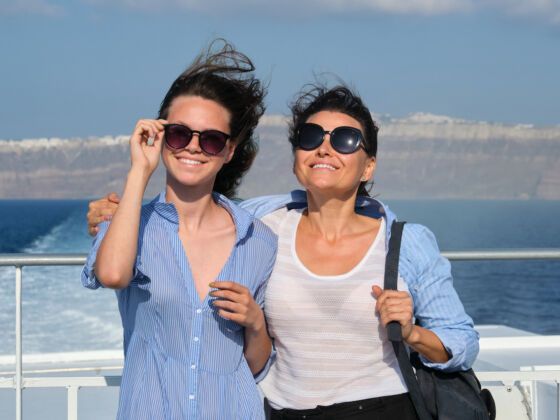“Oh no you don’t,” my mother said. “You’re not going to jump off from there.”
“It’s deep enough,” I said, teetering on the edge of the schooner, the Aegean Sea below. In the distance, the white-washed buildings clinging to the edge of the caldera looked like snow.
“I forbid it!” she said.
“Mom, I’m 35.”
“Then act like it,” my mother called.
